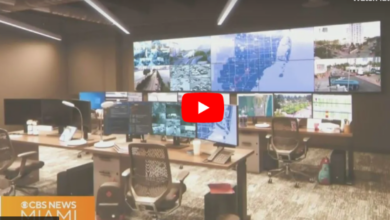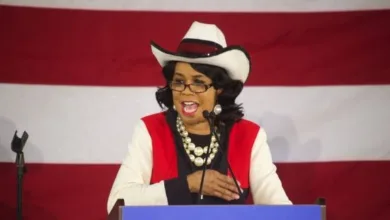Vital CARICOM-U.S. partnership takes center stage in Washington
WASHINGTON – The Caribbean diaspora can be tapped to play a vital role in the political and economic partnership between the Caribbean Community (CARICOM) and the United States, and to help raise the profile of Caribbean concerns, the Assistant Secretary General of the Organization of American States (OAS) and the Jamaican Ambassador reiterated in Washington Friday, June 15, ahead of the historic Conference on the Caribbean that opens next week.
Under the theme of “A 20/20 Vision,” the CARICOM heads of government and foreign ministers will meet in Washington with their U.S. counterparts, from June 19 through 21. Among other events, the OAS is also hosting a two-day seminar for Caribbean journalists beginning Monday, on the margins of that CARICOM-U.S. summit. Among other objectives, the Conference on the Caribbean seeks primarily to strengthen the CARICOM-U.S. dialogue; convey Caribbean perspectives on regional growth and development to the year 2020; and showcase the region.
OAS Assistant Secretary General Albert R. Ramdin, accentuating the importance of the diaspora in the development of the Caribbean countries themselves, Friday morning told a roundtable discussion that besides being “a strategic geopolitical sub-region in terms of security,” CARICOM also provides “ample scope for increased cooperation in combating organized crime, the illegal trafficking of firearms and drugs, and the threat of terrorism.” He said those small economies need more help to become “stronger, sustainable and able to withstand external shocks.” Job creation and investment promotion are key in addressing vulnerabilities such as the trafficking in illegal drugs, international organized crime, natural disasters, and the erosion of preferential treatment of their exports, said Ramdin.
Speaking to diplomats, international relations experts and representatives from international and regional organizations at a Conference on the Caribbean “scene-setter” session, held at the Center for Strategic and International Studies (CSIS), Ambassador Ramdin described development cooperation, increased investment and enhanced trade from the Caribbean to the United States as important to sustaining and raising levels of economic growth. Ramdin called for stronger U.S.-CARICOM relations that recognize the value of “dialogue mechanisms that work and deliver to both,” and noted that security concerns in the Caribbean have direct bearing on the United States.
He also pointed to the need for a restructured Caribbean Basin Initiative (CBI) to govern trade and economic relations, and highlighted strengths that CARICOM brings to the hemisphere, in areas that include good governance, democracy and civil society, as well as the region’s strategic role helping to consolidate constitutional democratic government in Haiti.
Meanwhile, Jamaica’s Ambassador Gordon Shirley, representing the caucus of Caribbean ambassadors in Washington, outlined the three broad sets of discussions that will take place: government to government; government to people; and people to people. Ambassador Shirley explained that the Washington meetings, including with the Caribbean diaspora, are an opportunity to build stronger bridges between the region and the United States. He said it is hoped, for instance, that the forum of experts will give rise to “a much better understanding of issues.”
Ambassador Shirley argued that “all the Caribbean nations have a very strong tradition of democracy and commitment to human rights and a fierce independence,” which has fostered a longstanding strong relationship with the United States. He also gave an overview of major issues such as trade and economic development in the Caribbean, reaffirming the need for the CBI to be reexamined given the shift as Caribbean economies have responded to globalization and other forces.
Shirley underlined the issue of deportees to Caribbean countries as “the single most vexing issue” for the Caribbean Americans with whom the Caribbean ambassadors have met in key cities across the USA as they prepared for next week’s summit.
The Jamaican ambassador cited the CBI as well as security—including deportation—and natural disasters as key matters around which Caribbean-U.S. relations could be strengthened, along the lines already begun with the region’s preparations to host the recent Cricket World Cup tournament. That CARICOM-U.S. collaboration yielded, among other valuable results, a solid information-sharing system on immigration matters, Ambassador Shirley said.
Brian Nichols, Director of the U.S. State Department’s Office of Caribbean Affairs, reaffirmed the importance the U.S. administration places on its relations with the Caribbean countries on many fronts. He offered that the senior level meetings and interaction with Caribbean officials—such as visits to the region by the Homeland Security Secretary—is an indication of the breadth of that engagement.
Nichols also praised the Caribbean countries for their role in the Summit of the Americas—notably the last one, in Mar del Plata, Argentina, in 2005—and for being at the forefront of initiatives on trade.



